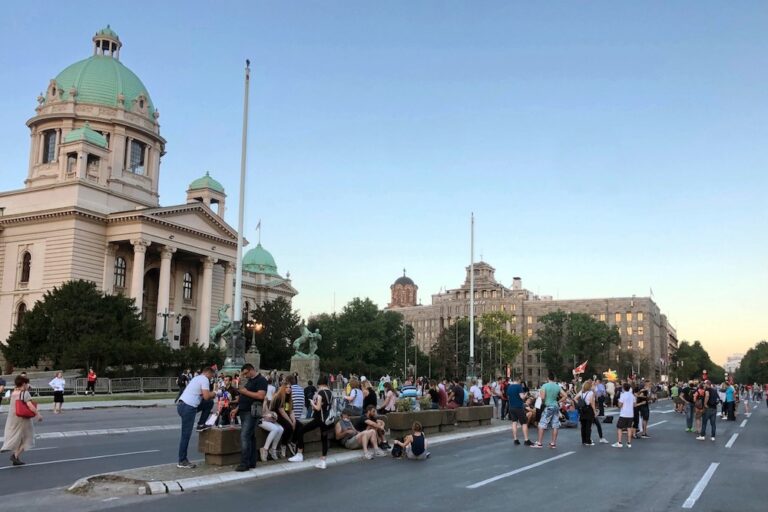IPI is concerned that new amendments to the Law on Public Information could lead to the introduction of increased self censorship.
Interior Minister tells delegation he is committed to protecting journalists
(IPI/IFEX) – Vienna/Belgrade, 4 December 2009 – After meetings with more than 50 representatives of leading media companies, journalists’ associations and high-ranking government officials in Serbia, the South East Europe Media Organisation (SEEMO), an affiliate of the International Press Institute (IPI), has called on the authorities to open a debate as soon as possible with media organisations on the impact controversial legislation will have on the ability of the press to fulfil its role in a democratic society.
During its three-day visit, the SEEMO/IPI delegation, which also included
representatives from the office of the OSCE Representative on Freedom of the Media, met with Serbia’s ministers of interior and culture, Ivica Dacic and Nebojsa Bradic, respectively.
SEEMO and IPI are concerned that new amendments to the country’s Law on Public Information, passed at the end of August 2009, could lead to the introduction of increased self censorship and even closing of some media organisations. Besides, investigative journalism and analyses could also be greatly curtailed because of the amendments, SEEMO believes.
SEEMO appeals to Serbian authorities to start working on a vision for the
future development of the media landscape in the country and to adopt a
strategy for the media in the foreseeable future. The absence of a strategy will continue to cause problems.
“We are worried that the existing laws have not been used effectively so
there are issues with broadcasting piracy,” said the President of SEEMO’s
Board, Boris Bergant.
SEEMO and IPI also expressed concern over the unsolved murder cases of three journalists in Serbia – Dada Vujasinovic, Slavko Curuvija and Milan Pantic – as well as unsolved cases of physical attacks on journalists in the past years. Minister Dacic said in an official meeting with the delegation that the prosecutor’s office has been given all files connected to the murders that date back to 1994 and that his Ministry is committed to protecting journalists from threats – both verbal and physical. According to SEEMO, there were 152 cases of attacks and threats against journalists in Serbia in 2008.
SEEMO Secretary General Oliver Vujovic said the organisation welcomes the Interior Minister’s statement.
SEEMO vowed to monitor the case of Dragana Kocic, a journalist from Nis
(South Serbia), who was fined 1 million dinar (about 10.500 euros) in a
defamation case, for quoting from an official document – the indictment
against a former military official.
“Government should not regulate the role of the media and impose laws that prevent it doing its job. Instead, IPI advocates media self regulation. We encourage the government to go back to the drawing board and include the voice of the media and press freedom organizations in redrafting more acceptable amendments to the current law,” said Alison Bethel McKenzie, Deputy Director of IPI.


